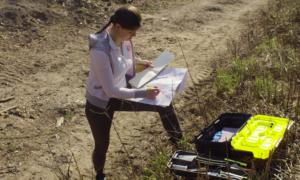More than 70 percent of Americans say they have cut back on the hours they spend volunteering and participating in civic activities this year – largely because of the recession – a new survey conducted for the National Conference on Citizenship (NCoC) found.
The 2009 America’s Civic Health Index is an annual report published by NCoC and the Civic Indicators Working Group that gauges Americans’ civic behaviors and attitudes, including their rates of voting and volunteering, and their links to civic and religious organizations.
According to NCoC Executive Director David Smith, this year’s report differs from the reports gauging involvement during past economic slumps.
“Generally when things pull back slightly, … we actually see people rise to the occasion and volunteer,” said Smith, who added that when unemployment rates reach a certain threshold, usually around 9 percent, self-preservation becomes the top concern of many Americans.
Despite this year’s drop in volunteerism, informal forms of civil engagement are holding strong. In fact, 50 percent of Americans gave money or food to someone in need who is not a relative, the index states.
“People are engaging in a different way,” Smith said. “People are opening their homes, feeding their families, feeding their friends, and really looking toward solving very specific local problems.”
The results of the Civic Health Index differed somewhat from statistics recently released by the Corporation for National and Community Service in their Volunteering in American report. That study found that volunteering has remained relatively steady during the economic downtown, but those numbers included both formal and informal volunteer efforts. And while formal volunteer projects were down somewhat, there were increases in informal volunteer efforts.
Other surveys have found a steep drop in charitable giving.
According to the index, several factors seem to affect a person’s civic engagement, including their involvement in religious organizations, the amount of interactions they have with family and friends, and their age.
In the past, older Americans generally volunteered more than young people; however, the 2009 index shows that the amount of formal volunteering by members of Generation-X and the Millennial Generation surpassed formal volunteering by Baby Boomers. Still, between 71 percent and 75 percent of people in each of these generations reported a reduction in their civil engagement.
To reverse the declines in volunteerism, Smith said governments and local organizations can do several things.
“I think that what we can do right now is foster greater investments in the way people are willing and open to engage, which is much more local, it’s much more personal, much more community-based,” Smith said. “As the broader economy starts to improve, I think we’ll see more traditional forms of engagement improve with that recovery.”































